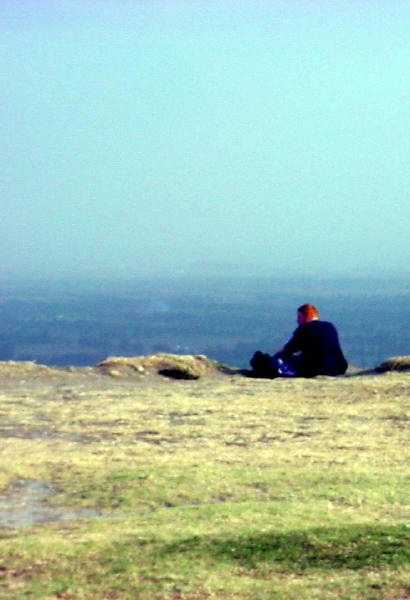 By the end of my first semester in college, I was convinced that learning a foreign language was out of my reach. Though I had done alright in high school, my first college-level Spanish course knocked me flat. It got so bad, in fact, that I ended up taking it pass/fail, and I barely squeaked by with credit. Clearly, I was no good at learning languages!
By the end of my first semester in college, I was convinced that learning a foreign language was out of my reach. Though I had done alright in high school, my first college-level Spanish course knocked me flat. It got so bad, in fact, that I ended up taking it pass/fail, and I barely squeaked by with credit. Clearly, I was no good at learning languages!
The following year, however, I spent seven months living and studying in Mexico. It was one of the most formative experiences of my life, exposing me to a culture totally distinct from my own. I fell in love with the people, places and heritage of Mexico, and I will always carry them with me.
Not to mention that my Spanish language proficiency improved dramatically. My semester abroad began with several weeks of intensive language instruction to bring me up to a passable conversational level, and for most of my seven months abroad I spoke almost exclusively in Spanish. By the time I returned for the fall semester in Kansas, I was ready to take – and pass! – Spanish literature classes. I realized that I was actually quite good at learning languages!
 So what changed? When I finally did succeed in gaining Spanish-language competency, it was because I was operating in my native learning style. I am a kinesthetic learner, but almost all of the classroom methods of instruction were oriented towards audio/visual. The vocabulary sheets and recorded conversations seemed to work great for some people, but not for me. I needed to connect with real human interactions, real relationships, if I wanted to effectively learn how to speak and comprehend. I had to get out of the classroom, to be put in a situation where I could just do it.
So what changed? When I finally did succeed in gaining Spanish-language competency, it was because I was operating in my native learning style. I am a kinesthetic learner, but almost all of the classroom methods of instruction were oriented towards audio/visual. The vocabulary sheets and recorded conversations seemed to work great for some people, but not for me. I needed to connect with real human interactions, real relationships, if I wanted to effectively learn how to speak and comprehend. I had to get out of the classroom, to be put in a situation where I could just do it.
Many times, our church communities feel a lot like the classroom. We get our audio/visual presentations, study written materials and cultivate our knowledge of Bible facts. Our eyes and ears are filled with all sorts of good things. But, for kinesthetic learners like me, it is the doing that really drives the message home.
 I have read the books and pamphlets; I have heard the sermons and sung the hymns. These resources have enriched me and given me lots of food for thought, yet at the end of the day I sometimes still feel like an undergraduate who has emerged with his BA only to find that he has no practical skills or experience that apply to a career.
I have read the books and pamphlets; I have heard the sermons and sung the hymns. These resources have enriched me and given me lots of food for thought, yet at the end of the day I sometimes still feel like an undergraduate who has emerged with his BA only to find that he has no practical skills or experience that apply to a career.
Do our Christian communities, with our classroom-style ways, risk similar irrelevance? Are we preparing one another for careers as disciples to Jesus? After years of Sunday School, are we any better equipped to make disciples and share the good news of Christ’s kingdom? Or have we just become better-versed in how to do church?
What are ways that we can equip one another to live as disciples and engage in the practical work of the gospel in our cities and towns? How can we get outside our comfort zone and embrace the immersion experience – the real-life baptism – that our faith demands of us?